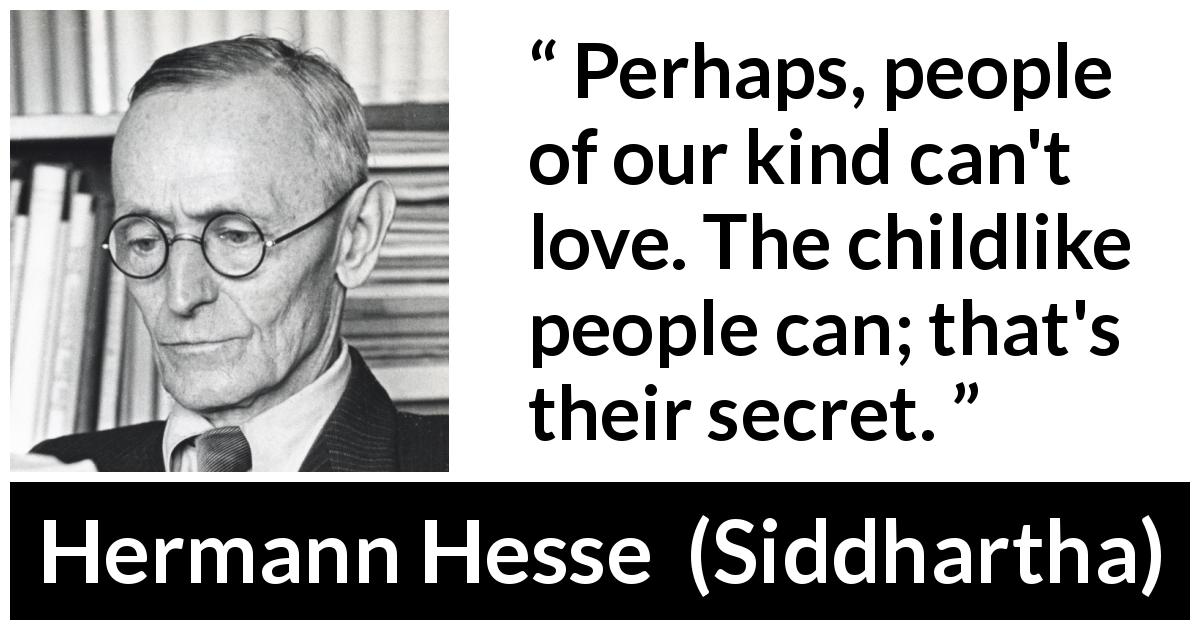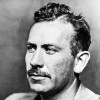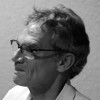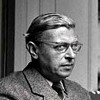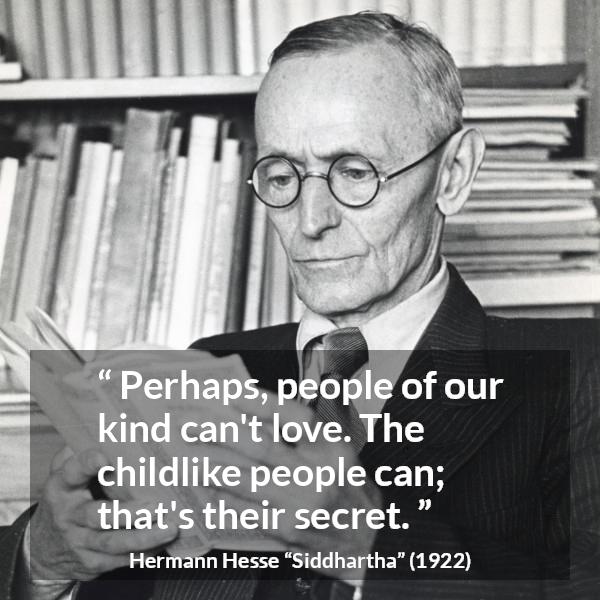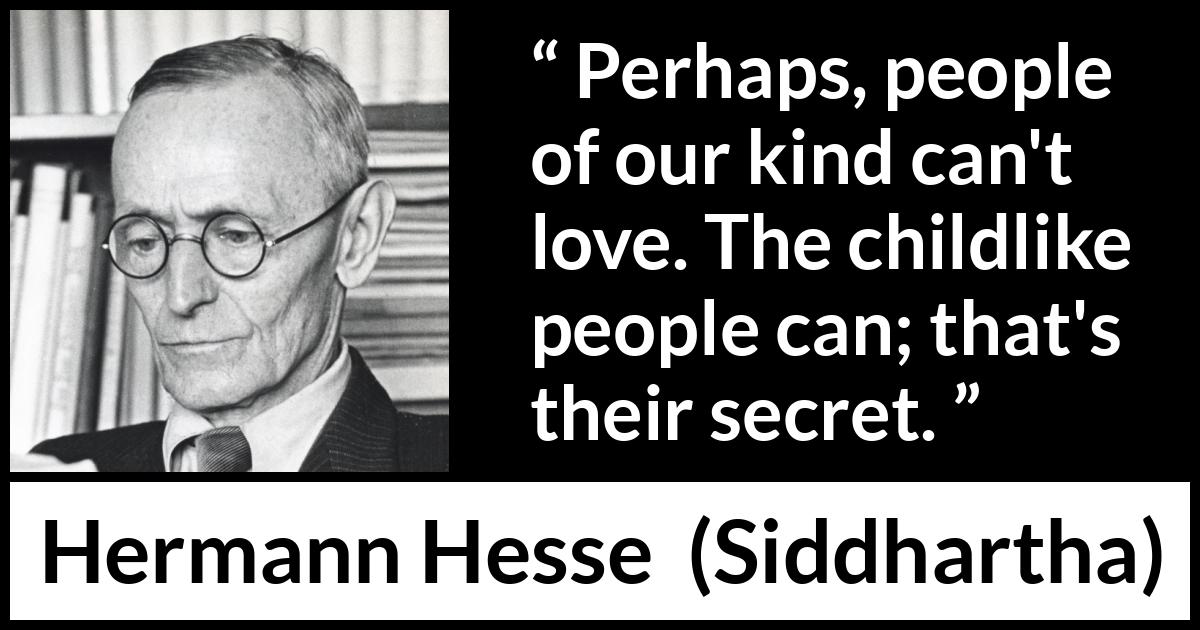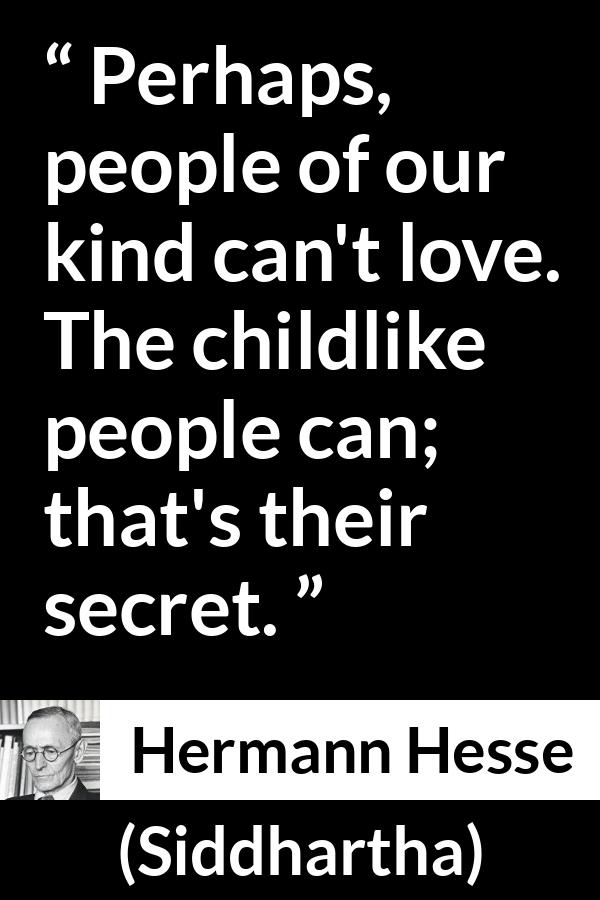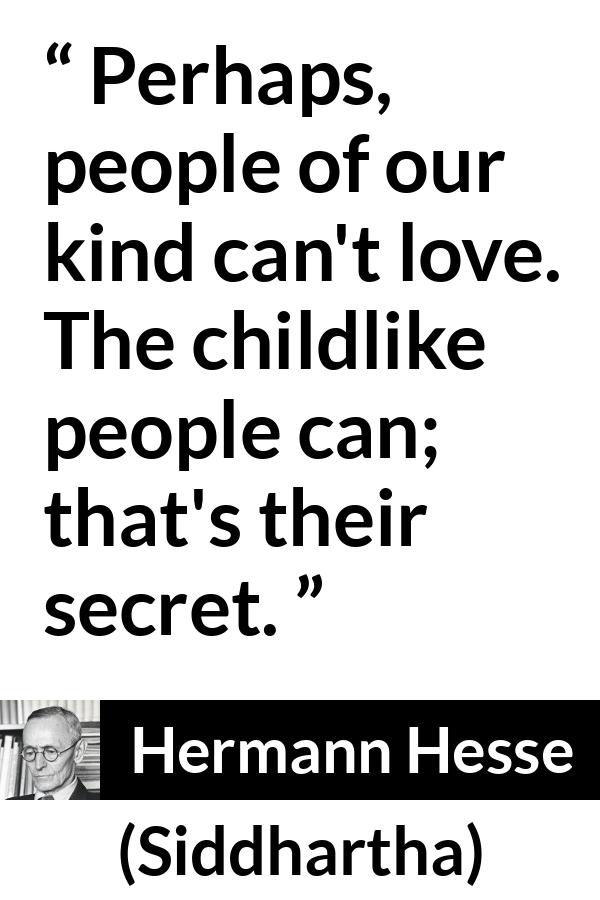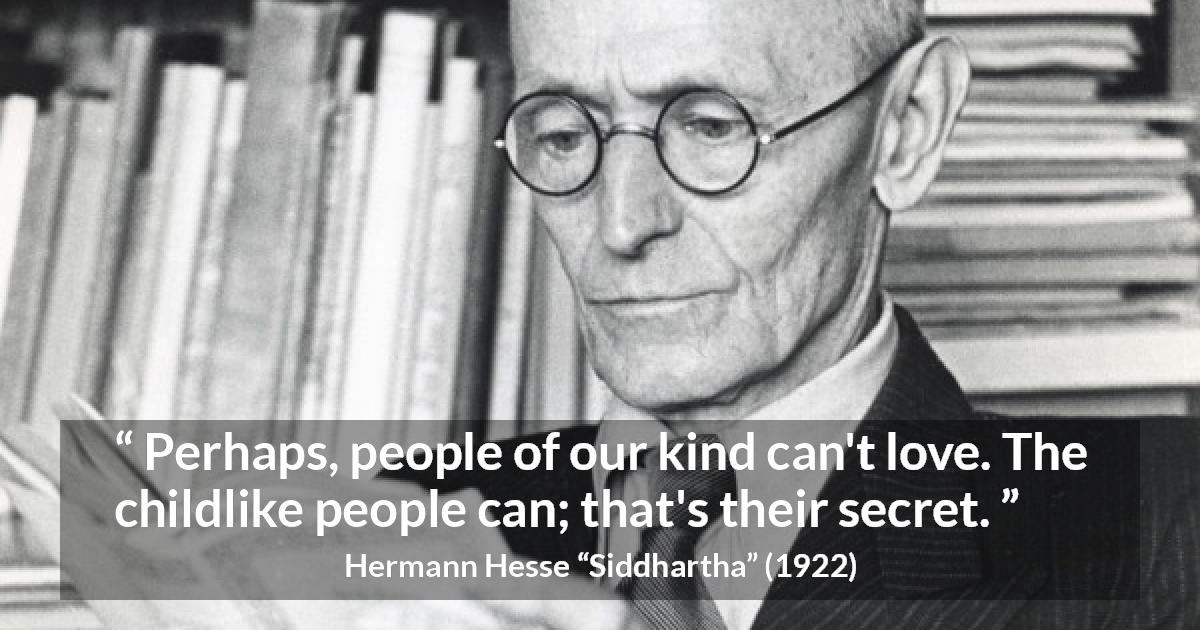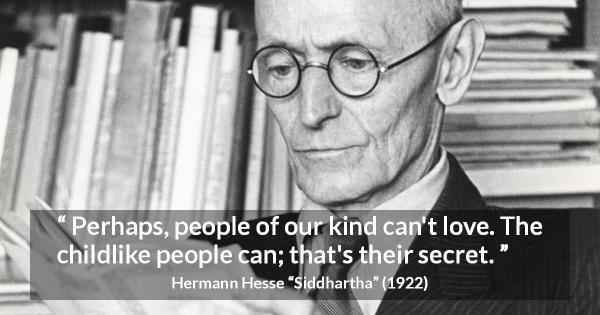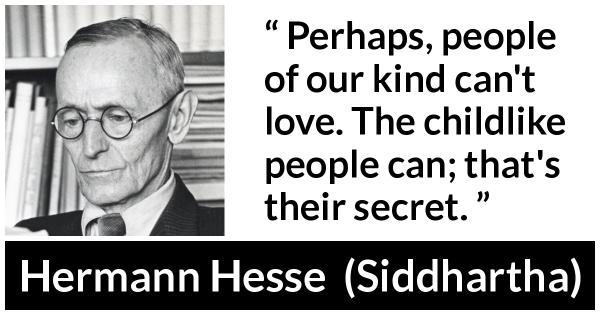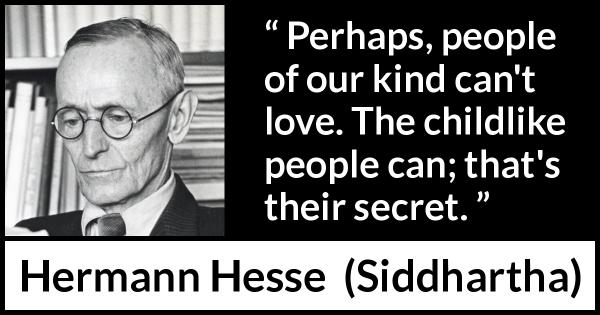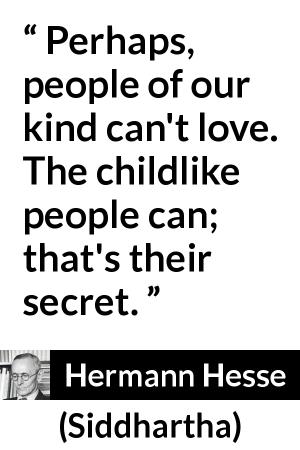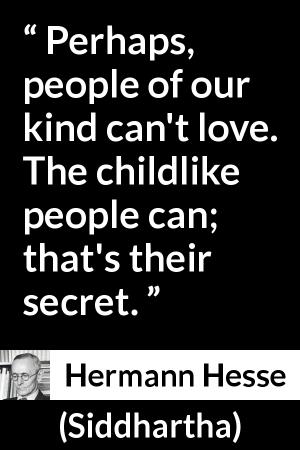“ Perhaps, people of our kind can't love. The childlike people can; that's their secret. ”
Hermann Hesse, Siddhartha (1922). copy citation
| Author | Hermann Hesse |
|---|---|
| Source | Siddhartha |
| Topic | love child |
| Date | 1922 |
| Language | English |
| Reference | |
| Note | Translated by Gunther Olesch, Anke Dreher, Amy Coulter, Stefan Langer and Semyon Chaichenets |
| Weblink | http://www.gutenberg.org/files/2500/2500-h/2500-h.htm |
Context
“And yet, my dear, you've remained a Samana, and yet you do not love me, you love nobody. Isn't it so?"
"It might very well be so," Siddhartha said tiredly. "I am like you. You also do not love—how else could you practise love as a craft? Perhaps, people of our kind can't love. The childlike people can; that's their secret."
SANSARA For a long time, Siddhartha had lived the life of the world and of lust, though without being a part of it. His senses, which he had killed off in hot years as a Samana, had awoken again, he had tasted riches, had tasted lust, had tasted power; nevertheless he had still remained in his heart for a long time a Samana; Kamala, being smart, had realized this quite right.” source
"It might very well be so," Siddhartha said tiredly. "I am like you. You also do not love—how else could you practise love as a craft? Perhaps, people of our kind can't love. The childlike people can; that's their secret."
SANSARA For a long time, Siddhartha had lived the life of the world and of lust, though without being a part of it. His senses, which he had killed off in hot years as a Samana, had awoken again, he had tasted riches, had tasted lust, had tasted power; nevertheless he had still remained in his heart for a long time a Samana; Kamala, being smart, had realized this quite right.” source
